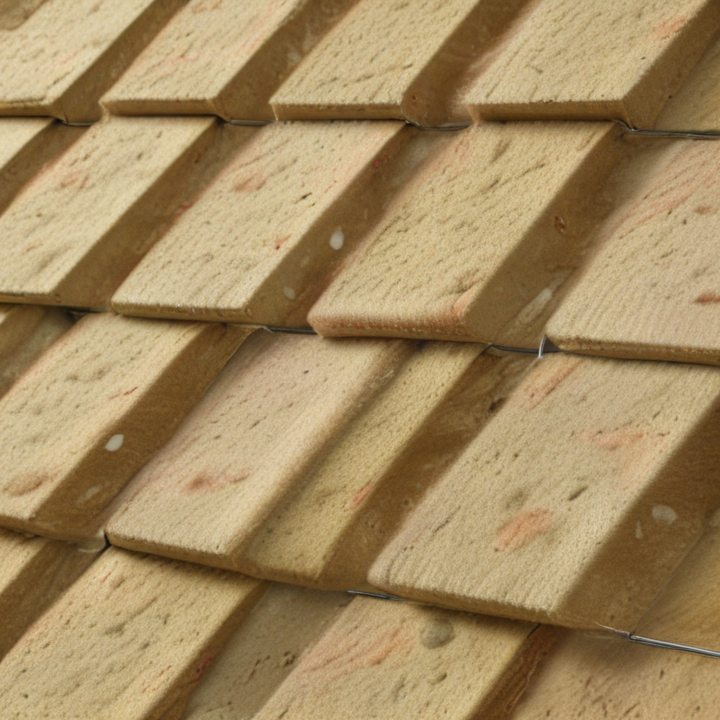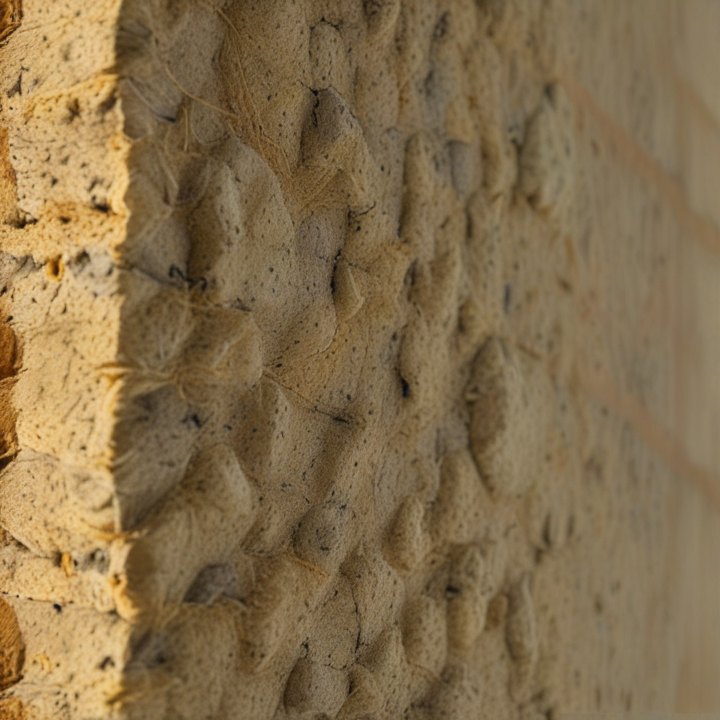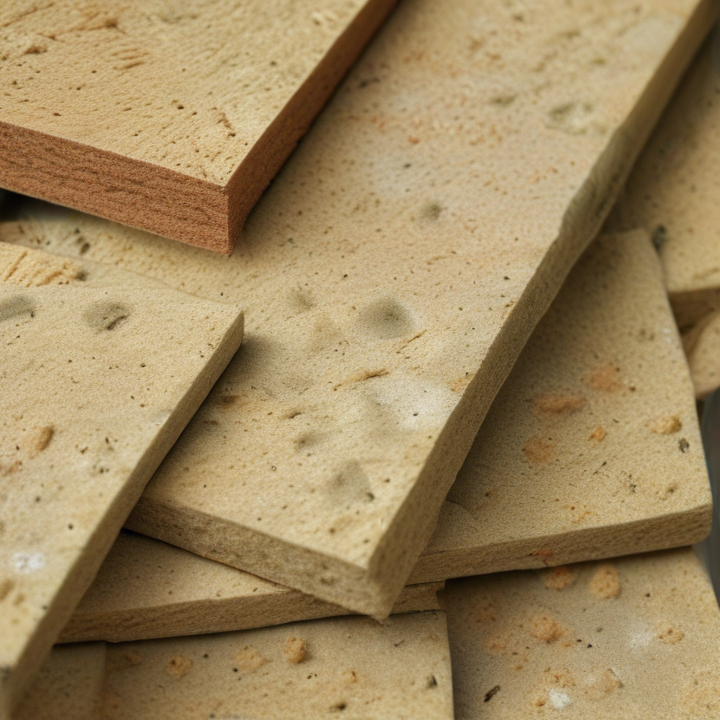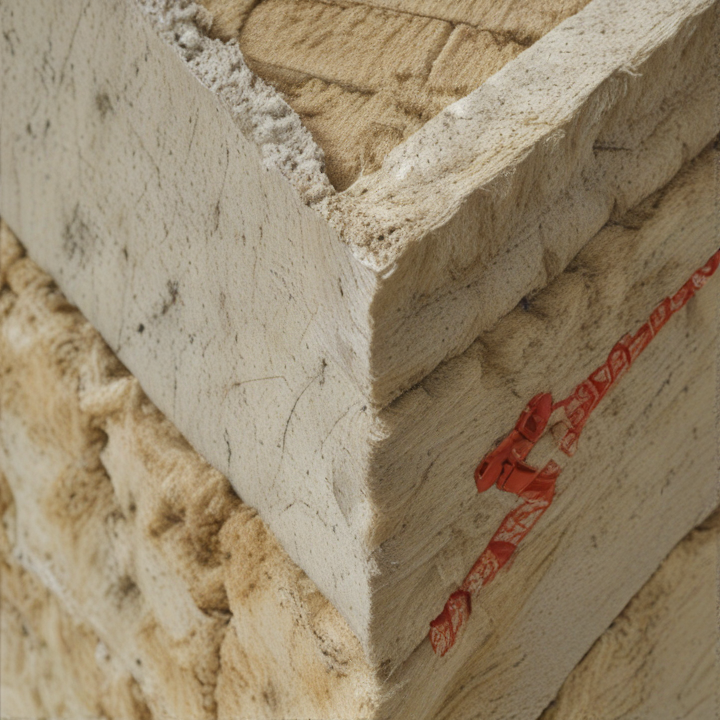panel rockwool Safety Certifications
Rockwool panels, renowned for their exceptional thermal, acoustic, and fire-resistant properties, adhere to stringent safety standards and certifications, ensuring reliability and safety across various applications. Here’s a summary of key safety certifications:
1. CE Marking: Rockwool panels sold in the European Economic Area (EEA) must bear the CE mark, indicating compliance with EU safety, health, and environmental protection requirements. This certification guarantees that the panels meet rigorous European standards.
2. ISO Certifications:
– ISO 9001: Quality Management Systems ensure consistent product quality.
– ISO 14001: Environmental Management Systems underscore Rockwool’s commitment to sustainable production practices.
– ISO 45001: Occupational Health and Safety Management Systems emphasize a safe working environment during manufacturing.
3. EN Standards:
– EN 13501-1: This European standard classifies the reaction to fire of construction products. Rockwool typically achieves an A1 or A2 rating, indicating non-combustibility and minimal contribution to fire.
– EN 13162: Specifies the requirements for factory-made mineral wool products used in thermal insulation.
4. FM Approvals: Rockwool panels often meet Factory Mutual Global’s standards for fire protection, signaling high performance in fire resistance and durability.
5. ASTM Standards: In the US, compliance with ASTM International standards, such as ASTM E84 (Surface Burning Characteristics of Building Materials), ensures the panels’ performance meets rigorous fire safety benchmarks.
6. LEED Certification: Rockwool products contribute to LEED (Leadership in Energy and Environmental Design) points, promoting sustainable and eco-friendly building practices.
7. LPCB Certification: The Loss Prevention Certification Board certifies products for fire safety, an important endorsement for fire performance.
These certifications collectively confirm that Rockwool panels are safe, reliable, and environmentally responsible, making them a superior choice for construction and insulation projects globally.
List Reference Technical Parameters of “panel rockwool”
Rockwool panels, widely used in construction for insulation and fire protection, have several critical technical parameters that distinguish their performance and suitability for various applications. Here are the key reference technical parameters:
1. Thermal Conductivity (λ-Value):
– Typically ranges between 0.034 to 0.045 W/mK, indicating excellent insulation properties by trapping air within the fibrous structure.
2. Density:
– Varies from 30 to 200 kg/m³, depending on the specific application (roof, wall, floor) and required rigidity.
3. Fire Resistance:
– Rockwool panels are non-combustible with a Euroclass rating of A1 or A2. They can withstand temperatures above 1,000°C, providing critical delay in fire spread.
4. Sound Absorption Coefficient:
– NRC (Noise Reduction Coefficient) can be as high as 1.0, making them highly effective for acoustic insulation.
5. Compressive Strength:
– Ranges from 40 to over 100 kPa, providing resistance to deformation under pressure, crucial for load-bearing applications.
6. Water Vapor Permeability:
– Permeance values typically range from 1 to 5 ng/Pa.s.m², ensuring breathability while maintaining moisture resistance.
7. Dimensional Stability:
– Excellent dimensional stability contributes to maintaining performance over time without significant expansion or contraction.
8. Environmental Resistance:
– Resistant to mold, mildew, and microbial growth due to inorganic composition. It does not sustain rodents or insects.
9. Environmental Impact:
– Made from natural stone and recycled materials, rockwool panels are environmentally friendly and fully recyclable at the end of their life cycle.
10. Mechanical Anchors:
– Panels are often reinforced with metal sheets (e.g., aluminum or steel) and have specific fixing systems for attaching to building structures.
11. Thickness:
– Available in various thicknesses ranging from 25mm to over 200mm, tailored to meet specific insulation requirements.
Understanding these technical parameters helps in selecting the appropriate rockwool panel type for specific building needs, ensuring optimal performance in insulation, fire resistance, and acoustics.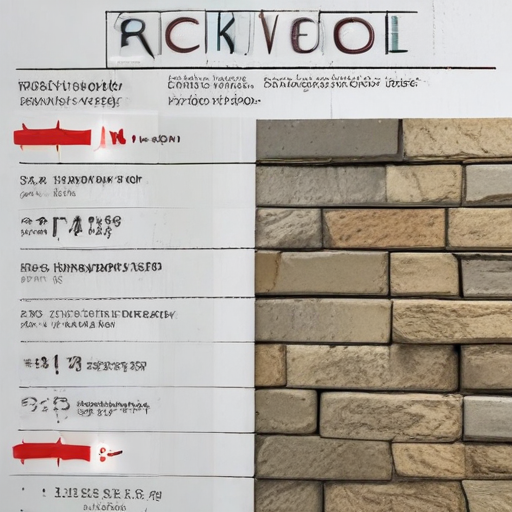
List Product features of “panel rockwool”
Panel Rockwool: Key Product Features
1. Excellent Thermal Insulation: Rockwool panels provide superior thermal insulation, which helps maintain consistent indoor temperatures and enhances energy efficiency.
2. Fire Resistance: Made from non-combustible materials, Rockwool panels offer excellent fire resistance, withstanding high temperatures and slowing down the spread of fire.
3. Acoustic Insulation: These panels effectively dampen sound, making them ideal for reducing noise in both residential and industrial settings.
4. Durability and Stability: Rockwool panels possess high strength and stability, ensuring long-term performance without significant degradation.
5. Moisture and Water Repellence: The panels are water-repellent yet vapor-permeable, preventing moisture build-up and promoting a dry, healthy indoor environment.
6. Ease of Installation: Rockwool panels are lightweight and easy to handle, allowing for quick and efficient installation in various construction applications.
7. Environmental Sustainability: Comprising mainly natural stone and recycled materials, Rockwool panels are eco-friendly and contribute to sustainable building practices.
8. Mold and Pest Resistance: The inorganic nature of Rockwool makes the panels resistant to mold, fungi, and pest infestations, ensuring a cleaner and healthier space.
9. Versatility: Suitable for a wide range of applications, Rockwool panels can be used in walls, floors, ceilings, and roofs in both new constructions and renovations.
10. Aesthetic Flexibility: Available in various finishes and colors, Rockwool panels can meet diverse design preferences and architectural requirements.
In summary, Rockwool panels are a robust choice for those seeking effective insulation solutions that offer thermal efficiency, fire safety, sound attenuation, and durability, all while supporting environmental sustainability.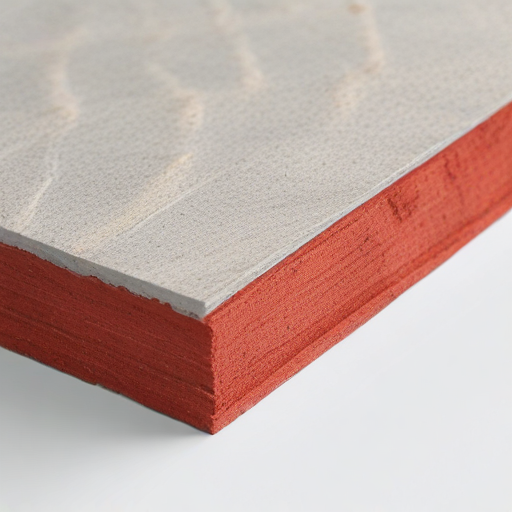
List Various Types of “panel rockwool”
Panel rockwool, or mineral wool panels, is a versatile insulation material used in construction for its fire resistance, thermal insulation, and acoustic properties. There are several types based on their application, density, and facing materials.
1. Standard Rockwool Panels: Used for general insulation purposes in walls, roofs, and floors, these panels provide basic thermal insulation and soundproofing.
2. Fire-Resistant Rockwool Panels: These panels are specifically designed to withstand high temperatures, providing excellent fire protection for buildings. They are often used in fire-rated walls, ceilings, and partitions.
3. Acoustic Rockwool Panels: Optimized for sound absorption, these panels are commonly used in spaces where noise control is essential, such as recording studios, theaters, and industrial facilities.
4. Thermal Rockwool Panels: These panels are tailored for maximum thermal insulation, ensuring energy efficiency in buildings. They are ideal for use in cold storage, HVAC systems, and building envelopes.
5. High-Density Rockwool Panels: Featured for their mechanical strength and higher compressive resistance, these panels are suitable for load-bearing applications, including industrial floors and flat roofs.
6. Foil-Faced Rockwool Panels: These come with a reflective foil facing that enhances thermal insulation by reducing radiant heat transfer. They are particularly useful in attic spaces and under roofs.
7. Vapor-Permeable Rockwool Panels: These panels allow moisture to pass through, preventing condensation and mold. They are suitable for applications where breathability is essential, such as in timber frame construction.
8. Prefabricated Sandwich Panels: These consist of two outer layers of metal or other materials with a core of rockwool, offering combined benefits of durability, insulation, and structural integrity. They are widely used in industrial and commercial buildings.
In summary, the choice of rockwool panel depends on the specific requirements of the building project, encompassing thermal, acoustic, fire-resistant, and structural needs.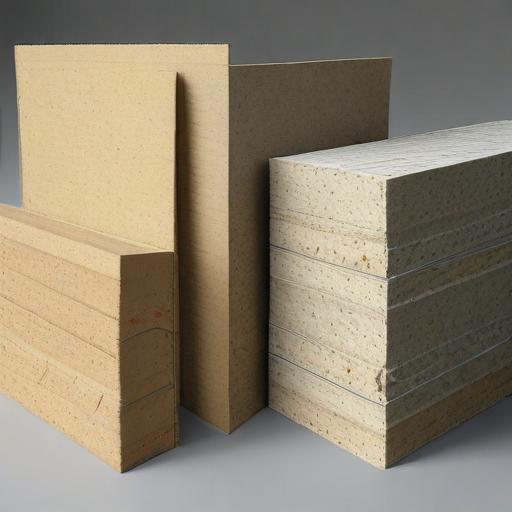
List Application of “panel rockwool”
Panel rockwool, also known as mineral wool or stone wool, is a versatile insulation material made from volcanic rock. With its excellent thermal, acoustic, and fire-resistant properties, panel rockwool finds various applications across different industries. Here are some notable applications:
1. Building and Construction:
– Wall Insulation: Used in cavity walls, partition walls, and external wall insulation systems to enhance thermal efficiency and reduce energy consumption.
– Roof Insulation: Applied in flat or pitched roofs to provide thermal regulation and reduce heat loss.
– Floor Insulation: Installed beneath floors to prevent heat transfer, enhancing energy efficiency and comfort.
2. Industrial Insulation:
– Pipe Insulation: Wraps around pipes in industrial settings to maintain temperature and prevent energy loss.
– Vessels and Tanks: Insulates storage tanks and vessels to maintain content temperature and improve energy efficiency.
– Boilers and Furnaces: Provides thermal insulation, ensuring operational efficiency and safety.
3. Acoustic Insulation:
– Recording Studios: Used in walls and ceilings for soundproofing, ensuring high-quality acoustics.
– Commercial Buildings: Installed in office partitions and ceilings to reduce noise pollution and improve workspace comfort.
– Concert Halls and Theaters: Enhances sound quality and prevents external noise interference.
4. Fire Protection:
– Fire-Rated Walls and Floors: Provides a fire-resistant barrier, preventing the spread of flames and protecting structural integrity.
– Structural Steel Protection: Insulates steel structures to maintain their integrity under high temperatures, crucial in fire safety.
5. HVAC Systems:
– Ducts and Ventilation: Insulates HVAC ducts, reducing thermal loss and preventing condensation, leading to better energy efficiency.
Incorporating panel rockwool in these applications not only improves thermal and acoustic performance but also enhances fire safety, making it an indispensable material across various sectors.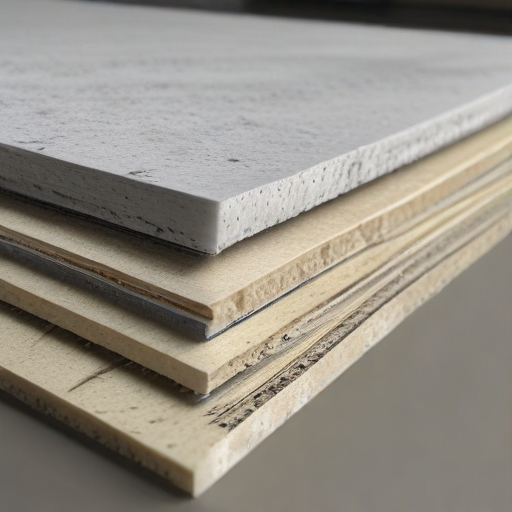
List Buyer Types of “panel rockwool”
Panel rockwool, also known as mineral wool or stone wool, is widely used for its excellent insulation properties, fire resistance, and soundproofing capabilities. Here are the main types of buyers who typically purchase panel rockwool:
1. Construction Companies:
– Commercial Builders: Use rockwool for insulating office buildings, shopping centers, and other commercial structures.
– Residential Builders: Incorporate rockwool in homes, apartments, and residential complexes for thermal and acoustic insulation.
2. Industrial Firms:
– Manufacturing Plants: Utilize rockwool for insulating machinery, boilers, and industrial equipment to improve energy efficiency and worker safety.
– Petrochemical Companies: Use it in refineries and chemical plants to provide fire resistance and thermal insulation for piping and equipment.
3. Government and Public Sector:
– Infrastructure Projects: Include rockwool in projects like airports, hospitals, and public buildings for improved safety and energy performance.
– Educational Institutions: Utilize it in schools and universities to enhance soundproofing and comfort levels in classrooms and libraries.
4. Automotive and Transportation:
– Automobile Manufacturers: Use rockwool for thermal and acoustic insulation in vehicles.
– Aerospace Companies: Apply it in aircraft design for fireproofing and noise control.
5. HVAC Contractors:
– Heating and Cooling Specialists: Install rockwool in HVAC systems to improve thermal efficiency and noise reduction.
6. DIY Enthusiasts and Homeowners:
– Self-Build Projects: Homeowners who undertake renovation or construction projects themselves might use rockwool for its ease of installation and effective insulating properties.
7. Retailers and Distributors:
– Building Suppliers: Stock rockwool for sale to builders, contractors, and DIY customers.
– Online Retailers: Offer rockwool to a broader audience with online purchasing options.
These diverse buyer types utilize panel rockwool to meet specific needs related to insulation, safety, and noise control, reflecting the material’s versatility and importance across various industries.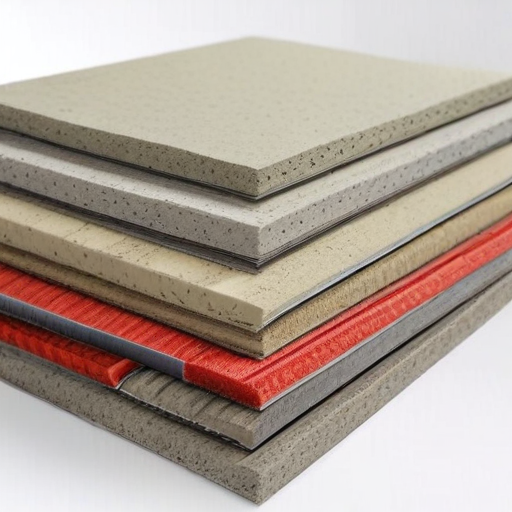
List “panel rockwool” Project Types for Different Industries
Certainly! Panel rockwool, also known as mineral wool panels, is utilized across various industries due to its excellent thermal, acoustic, and fire-resistant properties. Below are project types where panel rockwool is prominently used across different industries:
Construction and Building Industry
1. Wall Insulation: Used in both residential and commercial buildings for its excellent thermal and acoustic insulation properties.
2. Roof Insulation: Provides fire resistance and thermal control, enhancing energy efficiency.
3. Floor Insulation: Reduces sound transmission between floors and improves thermal performance.
Industrial and Manufacturing
1. Factory Buildings: Insulates walls and ceilings to maintain optimal temperature and reduce energy consumption.
2. Process Plants: Used in high-temperature processes for its fire-resistant and thermal insulation properties.
3. Warehouse Insulation: Helps in maintaining temperature control and fire safety.
HVAC and Mechanical
1. Duct Insulation: Minimizes heat loss/gain and reduces the noise transmission in HVAC systems.
2. Pipe Insulation: Used for thermal insulation of industrial pipes to prevent energy loss.
Transportation
1. Marine Applications: Utilized in ships for thermal and acoustic insulation, as well as fire resistance.
2. Railway Cars: For noise reduction and thermal insulation in passenger and goods trains.
Energy and Utilities
1. Power Plants: Insulation for turbines, boilers, and other high-temperature equipment.
2. Renewable Energy Facilities: Used in solar power and wind energy facilities for thermal control and fire resistance.
Healthcare and Laboratories
1. Hospital Insulation: Ensures a controlled environment with reduced noise levels and fire safety.
2. Clean Rooms: Provides contamination control via effective insulation.
Agricultural and Food Industry
1. Cold Storage Units: Ensures temperature regulation for preserving perishable goods.
2. Greenhouses: Utilized for insulation to maintain the optimal growth environment for plants.
These applications illustrate the versatility and functional benefits of panel rockwool across various industries.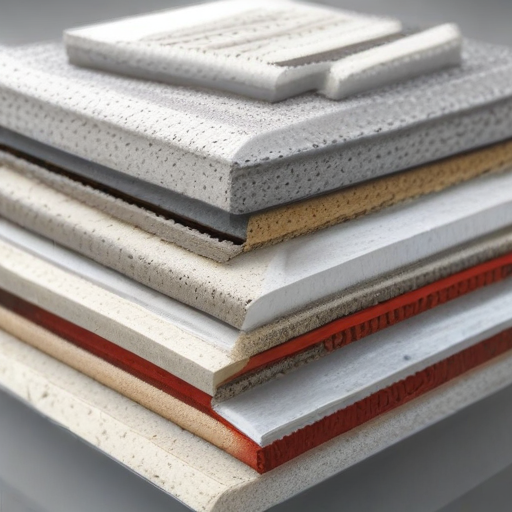
panel rockwool Accessories Upgrades and Custom Manufacturing Options
When selecting panel rockwool for insulation needs, understanding the available accessories, upgrades, and custom manufacturing options can significantly enhance performance and suitability for specific projects.
Accessories:
1. Fasteners and Fixings: Different types of screws, bolts, and anchors secure panels effectively, ensuring structural integrity.
2. Sealants and Adhesives: Specialized sealants and adhesives provide airtight bonding, enhancing thermal insulation and fire resistance.
3. Foil Facings: Aluminum or other reflective facings can be added to rockwool panels for additional moisture resistance and improved energy efficiency.
Upgrades:
1. Fire Resistant Coatings: Advanced fire-resistant coatings can be applied to enhance the panel’s ability to withstand high temperatures.
2. Acoustic Enhancements: Adding layers specifically designed for noise reduction can improve their soundproofing capabilities, suitable for environments requiring low noise levels.
3. Thermal Performance: Panels can be manufactured with higher density rockwool to improve thermal insulation properties.
Custom Manufacturing Options:
1. Panel Size and Shape: Custom sizes and shapes can be manufactured to meet specific project requirements, ensuring an exact fit for irregular spaces or unique architectural designs.
2. Density and Thickness: Adjustments in density and thickness of rockwool panels can be made to achieve desired thermal and acoustic performance.
3. Integrations: Integration of electrical conduits or plumbing channels within the panel structure can streamline installation processes and reduce labor costs.
Customizing rockwool panels with the right accessories and upgrades can dramatically boost their utility in various construction projects. Whether it’s improving fire resistance, optimizing acoustic performance, or tailored dimensions, understanding and utilizing these options ensures that the insulation meets the precise needs of any project, providing robust, efficient, and reliable solutions.
List Quality Control and The Manufacturing Process of “panel rockwool”
Quality Control in Panel Rockwool Manufacturing:
1. Raw Material Inspection:
– Inspect the mineral wool, resins, and other additives for specifications such as density, fiber length, and binder content.
2. Temperature and Velocity Monitoring:
– Ensure the melting furnace is at optimal temperatures to produce consistent fiber quality.
– Adjust fiberizing speeds to achieve correct fiber diameters.
3. Consistency Checks:
– Regularly monitor and test raw material blending to maintain uniform composition.
– Update machinery settings to adhere to production standards.
4. In-Process Testing:
– Conduct continuous checks for fiber distribution, density, and thickness consistency.
– Implement real-time adjustments to correct deviations.
5. Final Product Examination:
– Inspect panel dimensions, density, and structural integrity.
– Perform tests for fire resistance, thermal conductivity, and acoustic performance.
Panel Rockwool Manufacturing Process:
1. Raw Material Preparation:
– Mineral rocks such as basalt are crushed and mixed with recyclable materials.
2. Melting:
– The mixture is melted in a high-temperature furnace (~1500°C) to form molten rock.
3. Fiberizing:
– The molten rock is spun at high speeds to create fine fibers, often by forcing it through a series of spinning wheels or a centrifuge.
4. Binding and Layer Formation:
– Fibers are sprayed with a binding agent and collected on a conveyor belt, forming a continuous blanket.
5. Curing:
– The wet blanket moves through a curing oven where the binding agent is set, solidifying the blanket.
6. Cutting and Shaping:
– The cured blanket is cut into panels of desired sizes.
7. Facing:
– Optional: Panels may be laminated or clad with surfaces for added functionality like moisture resistance.
8. Packaging:
– Finished panels are inspected, packaged, and labeled for shipping.
By adhering to stringent quality checks and a precise production process, panel rockwool manufacturers ensure the creation of high-performance, reliable insulating materials.
How to use “panel rockwool”
Panel Rockwool, also known as rock wool insulation, is a versatile and efficient insulation material made from volcanic rock. It’s widely used for thermal, acoustic, and fire insulation in residential, commercial, and industrial applications. Here’s how to use it:
1. Safety First: Wear protective gear, including gloves, goggles, and a mask, to avoid irritation from fibers.
2. Measure and Cut: Measure the dimensions of the area you’re insulating. Use a straightedge and a sharp knife to cut the Rockwool panels to size. Ensure the pieces fit snugly to maximize insulation efficiency.
3. Prepare the Area: Clean the surface where you’ll install the Rockwool panels to ensure it’s free of dust, debris, and moisture. This helps the insulation adhere properly and perform optimally.
4. Install Panels:
– Walls and Ceilings: Insert the Rockwool panels between studs or joists. If necessary, use adhesive or insulation supports to keep the panels in place.
– Floors: Lay the panels between floor joists. Ensure they fit snugly without leaving gaps. Cover them with plywood or another flooring material.
5. Sealing Gaps: Use Rockwool or another sealant to fill any gaps or voids around the edges. This prevents thermal bridging and enhances insulation performance.
6. Finishing: After installation, cover the Rockwool panels with drywall, plasterboard, or another finishing material to complete the wall or ceiling.
7. Cleaning Up: Dispose of any offcuts or waste materials responsibly and clean up any fibers to prevent irritation.
Rockwool panels are fire-resistant, water-repellent, and provide excellent sound insulation. Regularly check the insulation for any signs of wear or damage and replace as necessary to maintain optimal performance.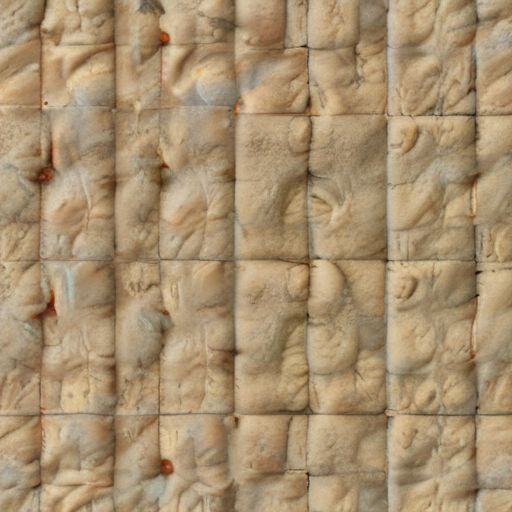
“panel rockwool” Comparative Analysis
Comparative Analysis: Panel Rockwool
Panel Rockwool, primarily made from natural stone fibers, is renowned for its exceptional thermal, acoustic, and fire-resistant properties. When analyzing this material, it’s essential to consider its performance against alternative insulation solutions like fiberglass, foam board, and cellulose.
Thermal Insulation:
Rockwool panels offer superior thermal insulation with an R-value ranging from 3.0 to 3.3 per inch. This is comparable to fiberglass, which has an R-value of approximately 2.2 to 2.7 per inch, making Rockwool more efficient in maintaining indoor temperature. Unlike foam boards (with R-values between 3.6 to 8.0 per inch), Rockwool doesn’t suffer from off-gassing or thermal drift over time.
Fire Resistance:
A standout feature of Rockwool panels is their non-combustibility, with a melting point exceeding 1,800°F. This is significantly higher than fiberglass (1,200°F) and greatly superior to foam boards, which can release toxic fumes when ignited. Rockwool’s A1 Euroclass rating makes it ideal for enhancing building safety.
Acoustic Performance:
Rockwool excels in sound absorption, with a Noise Reduction Coefficient (NRC) of around 0.90 – 1.05, outperforming fiberglass (0.70 – 0.90) and foam boards (0.30 – 0.70). This makes it particularly suited for buildings requiring stringent noise control.
Moisture Resistance and Durability:
Unlike cellulose, which can absorb moisture and lose insulation capacity, Rockwool maintains its integrity and performance in wet conditions. Its inorganic composition also prevents mold and mildew growth, extending its lifespan and reliability, unlike some foam board varieties that may degrade over time.
Ease of Installation:
Rockwool panels are often denser and consequently heavier, thus harder to handle compared to lightweight fiberglass. Despite this, their rigidity and dimensional stability simplify installation in vertical structures compared to the more flexible fiberglass batts.
Environmental Impact:
Rockwool has a lower embodied energy compared to foam boards but higher than cellulose. However, its recyclability and longevity offer sustainable benefits, offsetting initial production impacts.
In summary, Panel Rockwool emerges as a versatile and robust insulation choice, excelling particularly in fire resistance, acoustic dampening, and thermal performance, making it a preferred option for modern, resilient construction.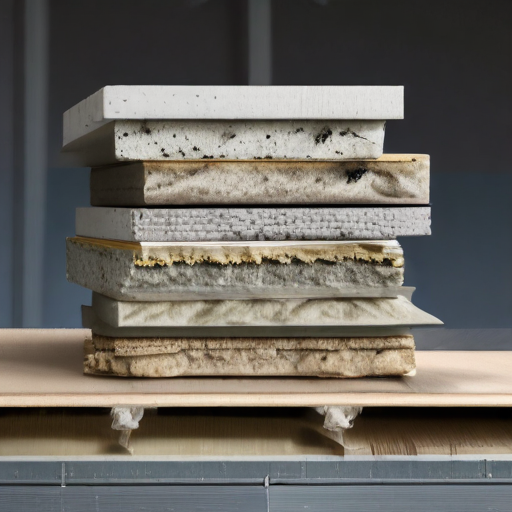
“panel rockwool” Warranty and Support
Warranty and Support for Rockwool Panels
Rockwool panels are renowned for their durability, thermal insulation, and acoustic properties. To ensure customer confidence, Rockwool panels typically come with robust warranty and support options.
Warranty Coverage
Most Rockwool panel manufacturers offer warranties ranging from 10 to 25 years, depending on the product and application. This warranty generally covers:
1. Material Defects: Assurance against any defects in materials and workmanship.
2. Thermal Performance: Guarantees that the panels will maintain their specified thermal resistance (R-value) over the warranty period.
3. Structural Integrity: Ensures the panels will retain their structural performance under normal use conditions.
4. Fire Resistance: Warranties often include fire resistance, as Rockwool panels are non-combustible and can endure high temperatures.
It’s crucial to review the specific terms and conditions of each manufacturer’s warranty, as coverage can vary.
Support Services
1. Technical Assistance: Manufacturers typically offer comprehensive technical support, including advice on installation, maintenance, and optimization for performance.
2. Customer Service: Dedicated customer service teams are available to answer queries, provide product information, and assist with warranty claims.
3. Installation Guidance: Many suppliers provide detailed installation manuals and videos to ensure correct installation practices, which are critical for warranty validity.
4. After-Sales Support: Continuous support even after purchase, including troubleshooting and replacement of defective panels.
Making a Warranty Claim
To make a warranty claim, keep the original proof of purchase and document any issues thoroughly with photos and descriptions. Contact the manufacturer’s customer service team to initiate the process. They will typically require an inspection and validation of the claim.
In summary, Rockwool panels come with extensive warranty and support services, ensuring long-term performance and customer satisfaction. Check specific product documentation for detailed terms and conditions.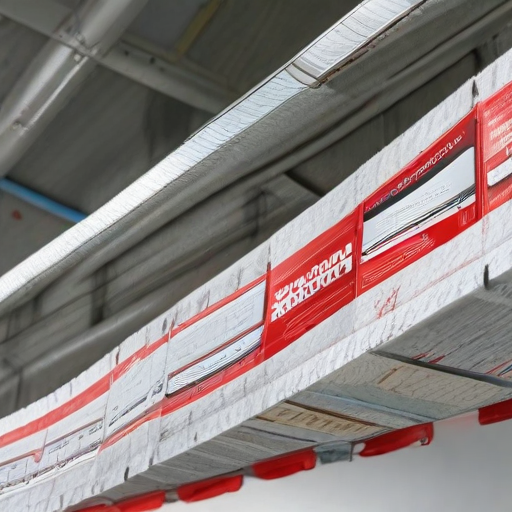
List “panel rockwool” FAQ
Panel Rockwool FAQ
1. What is Rockwool?
Rockwool, also known as mineral wool or stone wool, is an insulation material made from volcanic rock like basalt. It is known for its excellent thermal, acoustic, and fire-resisting properties.
2. What are Rockwool panels used for?
Rockwool panels are used in a variety of applications including walls, floors, ceilings, and roofs. They are commonly found in both residential and commercial buildings for insulation and soundproofing.
3. What are the benefits of Rockwool panels?
– Thermal Insulation: High resistance to heat flow.
– Acoustic Insulation: Excellent sound absorption capabilities.
– Fire Resistance: Non-combustible and can withstand high temperatures.
– Moisture Resistance: Does not absorb water, preventing mold growth.
– Sustainability: Made from natural and recycled materials.
4. Are Rockwool panels safe?
Yes, Rockwool panels are generally safe to handle and use. However, it is advisable to wear protective gear such as gloves and masks during installation to avoid skin irritation and inhalation of fibers.
5. How are Rockwool panels installed?
Installation methods vary based on application, but typically involve cutting the panels to size and fixing them in place using adhesives, fasteners, or mechanical support systems. Always follow the manufacturer’s guidelines.
6. Can Rockwool panels be used in external walls?
Yes, Rockwool panels can be used for external wall insulation. They provide excellent thermal performance and help reduce energy costs.
7. Do Rockwool panels need a vapor barrier?
In certain situations, a vapor barrier may be recommended to prevent moisture accumulation. Consult building codes and industry standards for specific requirements.
8. How do Rockwool panels compare to fiberglass insulation?
Rockwool generally offers better fire resistance, sound absorption, and moisture resistance compared to fiberglass insulation. It is also more environmentally friendly, though usually more expensive.
9. Are Rockwool panels environmentally friendly?
Yes, Rockwool panels are made from natural rock and recycled materials and can be recycled at the end of their life cycle, making them an eco-friendly choice.
10. Where can I purchase Rockwool panels?
Rockwool panels are available at most building supply stores, specialized insulation suppliers, and online retailers.
These FAQs provide a basic overview of Rockwool panels and their use. Always consult professional installers or manufacturers for detailed and specific advice.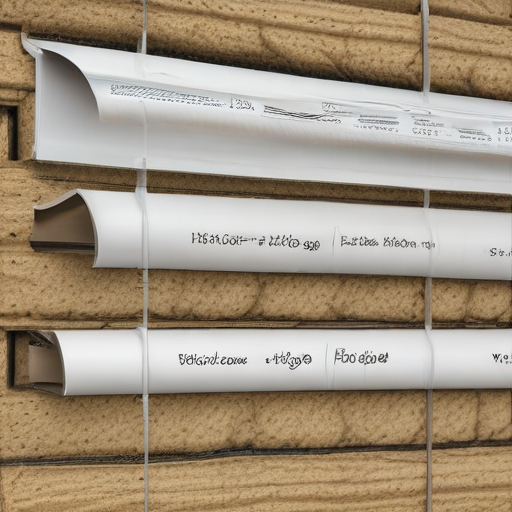
Top 10 FAQ with answer about panel rockwool for Buyer Sourcing from China
Top 10 FAQ about Sourcing Panel Rockwool from China
1. What is panel rockwool used for?
Panel rockwool is primarily used for thermal insulation, soundproofing, and fire resistance in buildings. Common applications include insulation for walls, ceilings, and industrial equipment.
2. How is the quality of Chinese rockwool panels?
Chinese manufacturers typically produce rockwool panels that meet international standards, including ASTM and ISO certifications. However, it’s crucial to verify the quality through samples and factory audits.
3. What are the advantages of sourcing rockwool panels from China?
Sourcing from China can offer cost savings, a wide range of products, and quick lead times. Chinese suppliers often have the capacity to handle large orders efficiently.
4. How can I ensure I’m dealing with a reliable supplier?
Perform due diligence by reviewing company certifications, factory capabilities, customer feedback, and conducting site visits if possible. Utilize online platforms like Alibaba, but vet suppliers carefully.
5. What are the typical order quantities (MOQ) when buying rockwool panels from China?
The MOQ can range from 100 to 500 square meters, depending on the supplier. Some manufacturers may offer flexibility, especially for trial orders.
6. What is the lead time for manufacturing and shipping?
The lead time can vary but generally ranges from 15 to 30 days for production. Shipping time depends on the destination and chosen logistics method, typically taking 20-40 days for sea freight.
7. What are the payment terms commonly accepted?
Common payment terms include T/T (Telegraphic Transfer) with a 30% deposit upfront and the remaining balance before shipment. Other methods like L/C (Letter of Credit) may also be accepted.
8. How are rockwool panels packaged for export?
Panels are usually packaged in protective wraps and placed on pallets to prevent damage during transit. Be sure to specify any special packaging requirements you may have.
9. Are there any specific certifications needed for importing rockwool panels?
Verify the specific import regulations and certify requirements for your country. Common certifications include CE for Europe and UL for the U.S.
10. Can suppliers provide custom sizes and specifications?
Yes, many Chinese suppliers offer customization options to meet specific project requirements. Ensure to discuss your exact needs and confirm the feasibility before placing an order.
By addressing these FAQs, you’ll be better equipped to make informed decisions when sourcing panel rockwool from China.

